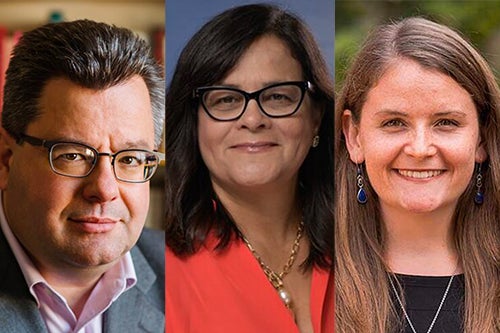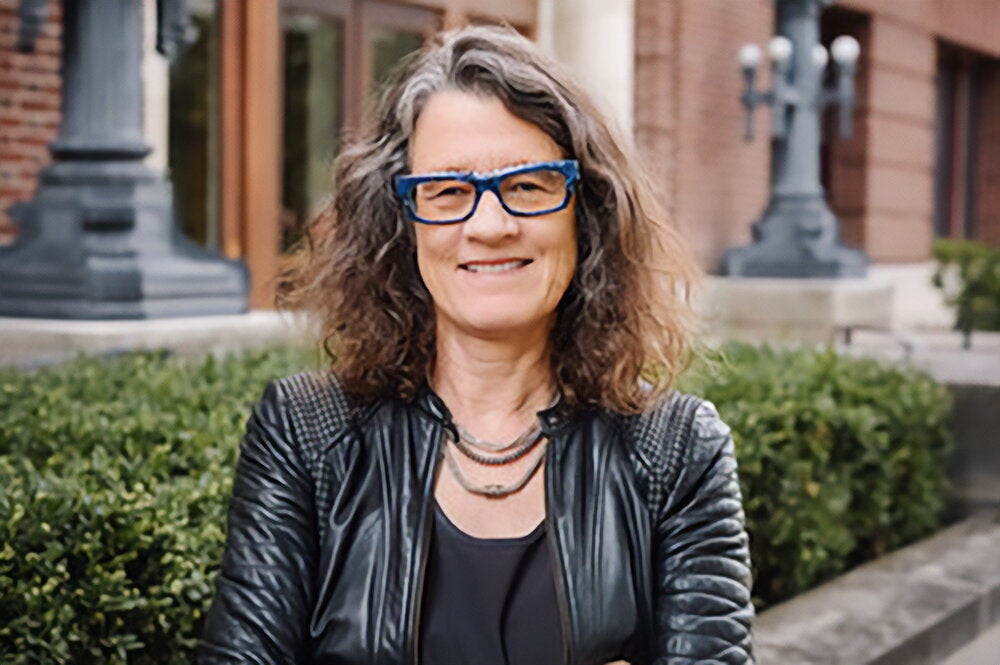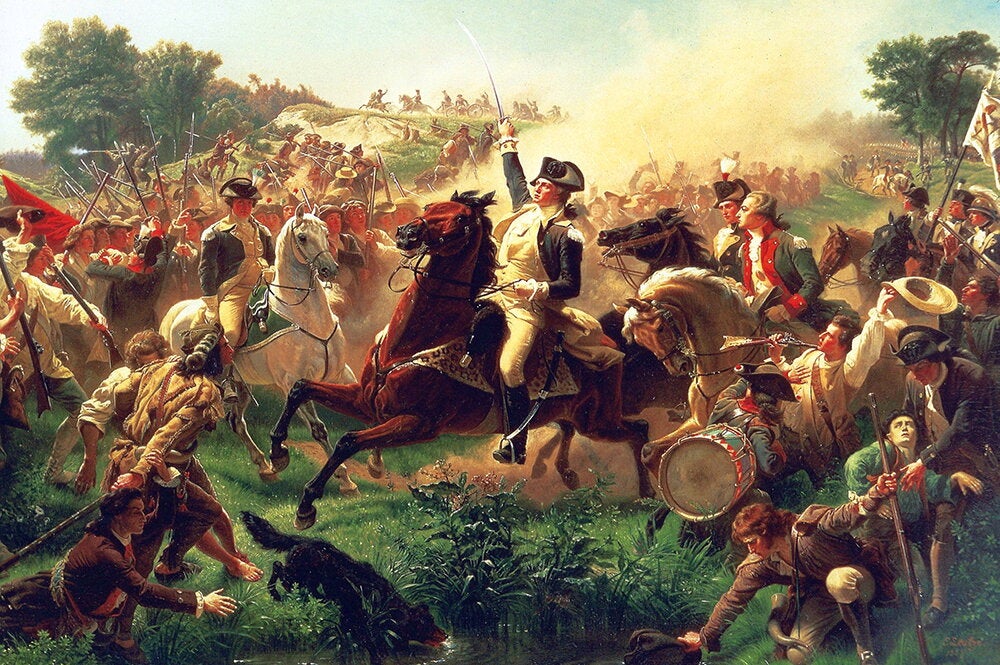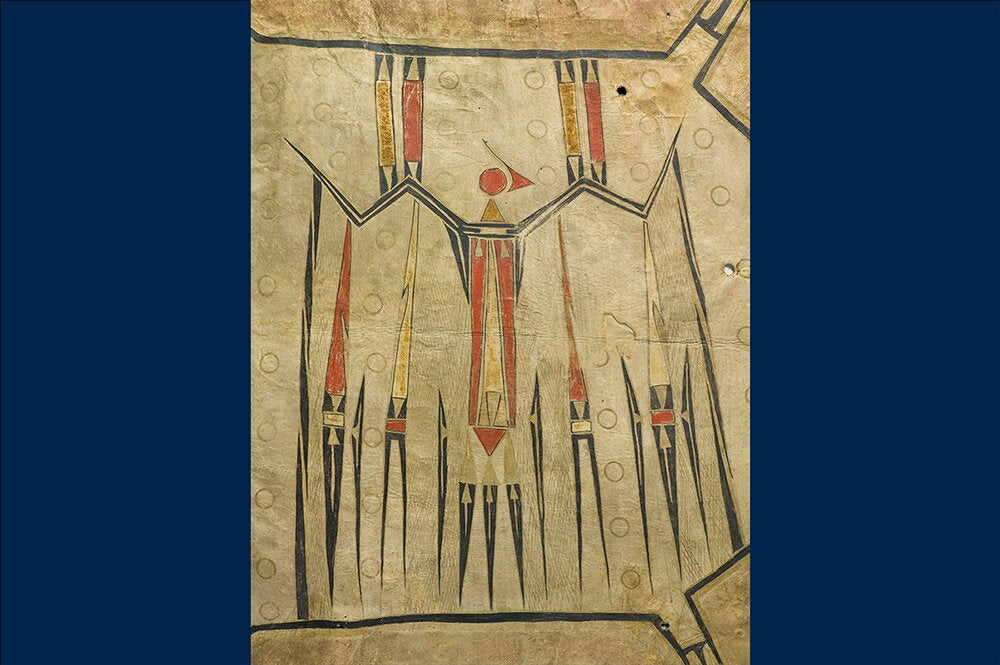

Researching is like putting together a puzzle you don’t have all the pieces for, according to history professor Anna Whittington. Sometimes you don’t even know what the puzzle adds up to, she noted—and that’s where the fun lies. While research is a year-round endeavor, summertime, she said, is a window of opportunity unlike any other time to put the pieces of knowledge together.
Without the normal slate of meetings and classes to teach, scholars often rely on the time between spring and fall semesters to develop books and other projects. This is a particularly important time for researchers who must travel to distant historic sites and archives to gather information for their work.
Whittington used this past summer to continue writing a book on citizenship and identity in the Soviet Union. This is her first book, and she spent summer 2023 searching archives and getting her hands on documents relevant to her topic. She went to places like Moldova, Latvia, and Lithuania, ordering documents, taking notes, and trying to find more puzzle pieces.
Whittington used summer 2024 for writing, which she describes as a different part of the research process.
“I think that there is a really exciting level of discovery that comes when you sort of are making connections and starting to get an image that comes into place,” Whittington explained. “You have all these small pieces, the individual documents that you do and then you get to sort of paint the picture. The writing process is, is how you fill in from all those small bits of pieces.”
Filling in these pieces and building research is a fundamental part of being a professor and an academic, said Mariselle Meléndez, professor of Spanish and director of the School of Literatures, Cultures, & Linguistics (SLCL).

While Meléndez works in an administrative position, she continues to make time for her research. She is working on a book tentatively titled, “Fluid Spaces and Transient Bodies: The Cultural and Racial Geography of Spanish American Ports in the Eighteenth Century”, and summer is important. She notes that many professors in SLCL use the summer months in similar ways.
“Summer is key in advancing my research especially when things calm down after the end of the spring semester,” Meléndez said. “Although I do have a two-month summer administrative appointment, I set time apart to work on my book.”
Meléndez used summer 2024 for the review and analysis stage of researching. She spent her time transcribing and analyzing documents obtained from international archives, and she sees the connections between her research and her administrative and teaching roles.
“I believe my love for my research helps me in my administrative role,” Meléndez explained. “As someone deeply invested in issues of diversity, equity and inclusion, I believe my understanding of racial constructions and systems of inequality through history especially when it comes to women and other underrepresented groups, enable me to have a better understanding of the work that still needs to be done to achieve a system in which diversity, equity and inclusion become an intrinsic part of the tangible actions we pursue in the academia in which support and potential success is open to all.”
History professor Craig Koslofsky spent summer 2024 writing his sixth book, which focuses on the history of human skin and race and the history of how skin is perceived. He has traveled internationally and built a network of fellow historians.
“The community is very collaborative and connected in spirit,” Koslofsky said. “If people know you and know what you are working on, they may even find something for your research without you asking. That is a really beautiful part of it all.”
Researching during the summer isn’t without its challenges and risks. In the summer of 2022, Koslofsky said, he visited an archive in northern Germany with hope of uncovering something that other historians had missed. He came up relatively empty-handed.
While moments like that can be frustrating, he said, they are all a part of the larger process of writing books. Koslofsky is currently in one of the later stages of his writing process: reviewing his copy, making edits, and otherwise putting together a book of around 120,000 words. Working on his book, Koslofsky added, helps him develop as a teacher and mentor.
“I always teach classes that directly correlate to what I am researching. I feel very strongly about this. When you are a scholar, it is what makes you a professor,” Koslofsky said. “When we teach our courses, it is not just about the content but the skills you gain when you are doing the research itself.”
Whittington echoed his sentiment.
“I think in most respects most of the courses that I teach have something to do with Russian or Soviet history or Central Asian history,” she said. “In the parameters of teaching, I find a lot of ways in which I incorporate my own research approach and some of my ideas, and sometimes some of the sources.”
Koslofsky notes that a summer spent researching and pursuing an academic interest isn’t really down time at all, though professors work on a less structured schedule.
“If I wasn’t a professor, some may say I was obsessive or obsessed,” Koslofsky said. “But this focus is the nature of what we do as professors and scholars. We nurture this drive for knowledge and desire to learn more about the topics we teach and care about.”


